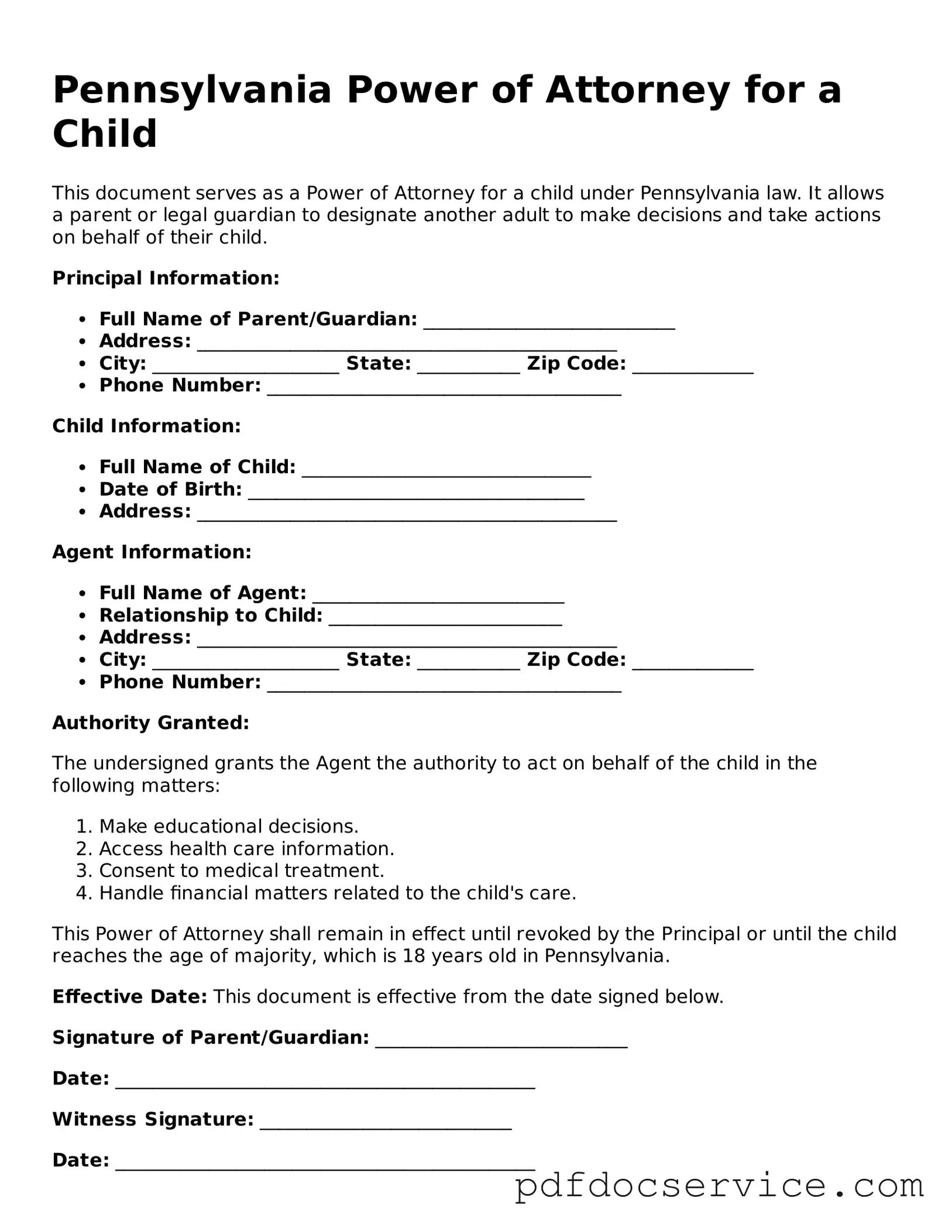What is a Power of Attorney for a Child in Pennsylvania?
A Power of Attorney for a Child is a legal document that allows a parent or guardian to delegate authority to another adult to make decisions on behalf of their child. This can include decisions related to health care, education, and general welfare. This form is particularly useful for parents who may be temporarily unable to care for their child due to travel, illness, or other circumstances.
Who can serve as an agent under this Power of Attorney?
The agent, often referred to as the attorney-in-fact, must be an adult. This could be a relative, family friend, or trusted neighbor. It is essential to choose someone who is responsible and capable of making decisions that align with the child's best interests.
How long does the Power of Attorney for a Child last?
The duration of the Power of Attorney can vary based on the preferences of the parent or guardian. Typically, the document remains in effect until a specified date or until the parent revokes it. If the parent does not specify an end date, it generally lasts until the child reaches the age of majority, which is 18 in Pennsylvania.
Do I need to have the Power of Attorney notarized?
Yes, in Pennsylvania, the Power of Attorney for a Child must be signed in the presence of a notary public. This step helps ensure the document's validity and provides an additional layer of protection against potential disputes regarding its authenticity.
Can I revoke the Power of Attorney once it is established?
Absolutely. A parent or guardian has the right to revoke the Power of Attorney at any time. This can be done by providing written notice to the agent and any relevant parties. It is advisable to keep a copy of the revocation for personal records.
What decisions can the agent make on behalf of the child?
The agent can make a variety of decisions, including but not limited to:
-
Medical decisions, including consent for treatment and access to medical records.
-
Educational decisions, such as enrollment in schools and participation in activities.
-
General welfare decisions, including care and supervision.
However, the specific powers granted can be tailored in the Power of Attorney document itself.
Yes, Pennsylvania has a specific form that must be used for the Power of Attorney for a Child. This form is available through various legal resources, including the Pennsylvania Bar Association and local legal aid organizations. It is important to use the correct form to ensure compliance with state laws.
What should I consider before creating a Power of Attorney for my child?
Before establishing a Power of Attorney, consider the following:
-
Choose a trustworthy agent who understands your values and the best interests of your child.
-
Clearly outline the powers you wish to grant, ensuring they align with your child's needs.
-
Discuss your decision with your child, if they are old enough, to ensure they understand the arrangement.
-
Consult with a legal professional to ensure the document meets all legal requirements.

